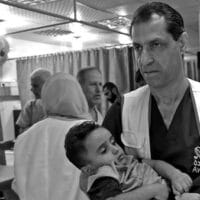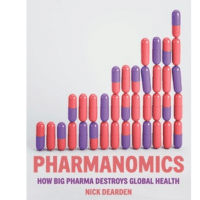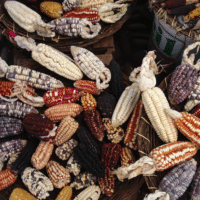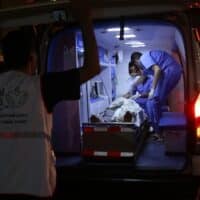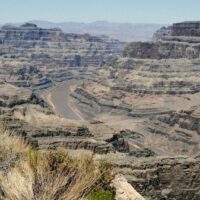-
Sequencing Revolt: How Grandmothers Fought the Argentinian Military Dictatorship and Revolutionized Science
The dictatorship in Argentina—one of the cruelest and bloodiest in the region—was in full swing. Among the thirty thousand disappeared by the state were an estimated five hundred babies and children, either taken along with their parents or born in the camps under brutal, inhumane conditions. Their grandmothers would do anything to find them.
-
Canada’s oilsands are a toxic nightmare
The poisonous waste, and deadly carbon emissions produced by oilsands production is even worse than had been thought, and production must stop, argues John Clarke.
-
‘Sickening Profits: The Global Food System’s Poisoned Food and Toxic Wealth’
The modern food system is being shaped by the capitalist imperative for profit.
-
Plastic pollution caused $249 billion in U.S. health care costs in 2018, finds study
Chemicals leaching from plastics are leaving Americans notably sicker and poorer, according to a new study found.
-
Changes in hospital adverse events and patient outcomes associated with private equity acquisition
Question – How do quality of care and patient outcomes change after private equity acquisition of hospitals?
-
‘Unimaginable situation’ in Gaza as 600 patients and staff expelled from Al-Aqsa Hospital
Hundreds flee Al-Aqsa Hospital in Gaza amid a deteriorating humanitarian situation across the enclave as Israel presses its assault.
-
Society of Pneumology calls to resume the use of masks
Updated statistics on pulmonology consultations show 26.2% of patients with exacerbated asthma; 11.9% with chronic obstructive pulmonary disease; 11.4% with acute bronchitis; 9.7% with influenza; and 7.8% with pneumonia.
-
‘Patients will die slowly, painfully’ as Gaza hospitals stop functioning – WHO
The World Health Organization (WHO) says northern Gaza has been left with no functional hospital, and only four operate at a minimum level, providing limited care.
-
World faces days of “moral decay” as Israel bulldozes hospital grounds, detains more doctors
Israel carries out unprecedented attacks against health workers and infrastructure in the Gaza Strip, bulldozing hospital grounds and detaining doctors.
-
The ‘brain drain’ is a symptom of how capitalism has failed the healthcare sector
Every year, thousands of healthcare workers leave South Africa, in order to chase better opportunities, as wealthier countries exploit desperate working conditions faced by them. This brain drain is a direct result of neoliberal policies, especially austerity.
-
‘Pharmanomics: How Big Pharma Destroys Global Health’ – book review
Pharmanomics is an important book that shows how Big Pharma’s profit seeking damages health care globally, but the solution lies outside the current system, argues John Clarke
-
The nuclear geopolitics of anthropogenic clouds
Among the various types of anthropogenic clouds, mushroom clouds that form in the sky after atomic bomb explosions are arguably the most spectacular.
-
Doctors in Italy strike against proposed pension cuts
Some 85 percent of staff of the National Health Service and private medical facilities stayed away from work.
-
The food police
Food theft isn’t an indicator of criminality, but of a failing social system.
-
Workers are dying from the heat: Why is it so hard to protect them?
No federal heat standard exists and lobbyists, corporate interests and those with fiercely anti-regulatory agendas have been vocal and active in keeping it that way.
-
Canada’s steadfast support for Big Agriculture’s assault on Mexican biodiversity
Although Mexico has maintained a ban on genetically modified (GM) corn since the 1990s, the move by Mexican President Andres Manuel Luiz Obrador (AMLO) in 2020 to eventually ban the import of GM corn in order to promote domestic cultivation of native varieties has threatened to spark a trade war with the United States.
-
The death of Al-Shifa Hospital, the last bastion of humanity in northern Gaza
People are dead in the streets in Gaza as hospital staff are unable to help the injured crying out for help outside hospitals. Medical workers who attempt to aid them are targeted and killed. No one is left to document the scale of the genocide.
-
Community fridges fight hunger and climate change
These dropoff sites for free food appeared across the U.S. during the pandemic, reducing waste and methane emissions in the process.
-
Health system in Gaza collapsing as fuel and medicine run out
The number of hospitals in Gaza shutting down operations is increasing, as Israeli attacks and limits on aid stop fuel, medicines, and supplies from reaching health workers
-
Big Ag is draining the Colorado River dry
The American West is facing a water crisis, compounded by climate change, a history of bad policy, and government refusal to address Big Ag head-on.

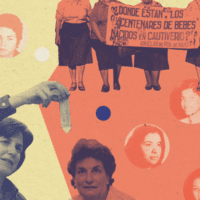
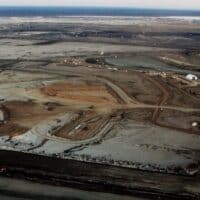
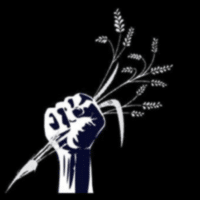
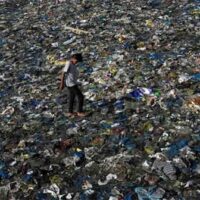

![Al-Aqsa hospital is the last remaining hospital operating in central Gaza, and has witnessed an influx in patients due to Israeli airstrikes in recent days [Photo by Ashraf Amra/Anadolu via Getty Images]](https://mronline.org/wp-content/uploads/2024/01/Screenshot-2024-01-10-at-14643 AM-200x200.png)


